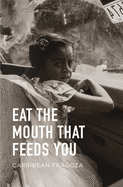
| Publisher: | City Lights Books | |
| Genre: | Women, Hispanic & Latino, Short Stories (single author), Literary, Fiction | |
| ISBN: | 9780872868335 | |
| Pub Date: | March 2021 | |
| Price: | $16.95 |
| Starred | Fiction |
by Carribean Fragoza
Nothing is as it seems in Carribean Fragoza's debut collection, Eat the Mouth that Feeds You. Writing in the traditions of magic realism and gothic literature, Fragoza has a gift for introducing a symbol at the beginning of a short story and allowing readers to linger on its distortion by the end. "Tortillas Burning" is about a young mother experiencing poverty and abuse, whose homemade tortillas stand in as evidence of her reclamation as she leaves Mexico for the United States.
Though these 10 stories home in on different characters, the experience of being a woman--especially a poor or working-class woman--in a world rife with discrimination and gender violence emerges as a through line in the transnational collection. Fragoza endows characters with specific sights, smells and histories that place readers inside an unfolding scene--even unnamed characters like the girl trying to help support her family by working at an upscale cosmetics store in "Crystal Palace," or the woman in "The Vicious Ladies," who, upon returning to her hometown from college, falls in with the same crowd from middle school, despite always feeling out of place among them.
One of the most surreal in the collection is the title story, which features a woman grappling with her daughter's devouring of her body, a commentary on the transfer of matriarchal and immigrant knowledge from one generation to the next. With winding plots and searing metaphors like this, Eat the Mouth that Feeds You expands and solidifies the Latinx literature canon. --Gwen Aviles, freelance writer
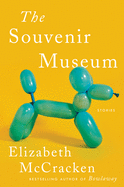
| Publisher: | Ecco | |
| Genre: | Short Stories (single author), Family Life, General, Literary, Fiction | |
| ISBN: | 9780062971289 | |
| Pub Date: | April 2021 | |
| Price: | $26.99 |
| Fiction |
by Elizabeth McCracken
The 12 stories collected in Elizabeth McCracken's The Souvenir Museum are skillfully crafted miniatures that feature unfailingly ordinary characters whose lives she uses to illuminate truths about love, longing and the elusive search for connection.
Beginning with the collection's opener, "The Irish Wedding," five of these stories feature a character named Jack, originally Lenny (the reason for his name change is revealed in the story "A Splinter"). Jack is born to an English family living in the United States, the only family member born outside England, something that makes him "a sort of Englishman, sort of American," and a fact that seems to influence his identity fundamentally. Several of Jack's stories include his partner, Sadie, who "wanted love so badly the longing felt like organ failure," and says her name is short for "Sadness." Jack thinks of himself as someone who has a "cactus soul," one that "need[s] water, too, but it could wait."
But McCracken (Bowlaway; Thunderstruck) isn't content to remain in one spot, and her stories feature exotic locales like an uninhabited island off the Scottish coast in "Proof," where a father and son embark on a puffin-watching expedition two months after the death of their wife and mother that's as much about father-son dynamics as it is about the hunt for rare birds.
The personal discoveries unearthed by characters like these may seem inconsequential, but they are anything but that. They're the stories of choices, turning points and epiphanies that are the stuff of life itself, and of indelible moments Elizabeth McCracken preserves in these unpretentious tales. --Harvey Freedenberg, freelance reviewer
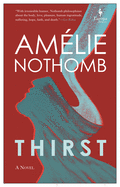
| Publisher: | Europa Editions | |
| Genre: | Humorous, Ancient, Christian, General, Literary, Fiction, Historical, Biblical | |
| ISBN: | 9781609456603 | |
| Pub Date: | April 2021 | |
| Price: | $15 |
| Fiction |
by Amélie Nothomb, trans. by Alison Anderson
Prolific writer Amélie Nothomb (Tokyo Fiancée; Pétronille), who's published a book annually since her 1992 debut, chooses Jesus as her 2019 protagonist in Thirst, her sixth title translated by Alison Anderson. At just 96 pages, Thirst is an easy single-sitting book, but its sly irreverence encourages repeat readings.
Nothomb sticks vaguely to the known script: Pontius Pilate sentences Jesus, he bears his cross, he's crucified with two thieves, he dies, he rises. But here, Nothomb grants Jesus first-person intimacy as "the most incarnate of human beings." Diverging dramatically from the recognizable, Jesus reveals his deepest thoughts with humor, fear, misgiving, but mostly aching honesty. He also proves himself a Proust fan.
During his imprisoned final night--even as the Gospels insist "this night I am writing from does not exist"--Jesus asserts new truths: he misses Joseph; Mary is a "far better person" than he; he loves Mary Magdalene (he called her Madeleine because he didn't like double names and "it's never a good idea to confuse your sweetheart with your mother"). He dares to dream of a future in which he lives, and he refuses water so he might arm himself with thirst as preparation for the tortures ahead, because thirst "can become so great that all other suffering will be deadened."
Nothomb, a baroness who has rewritten her own provenance story (she alleges Japanese birth despite Belgian records), seems rather practiced in embellishing history. With Thirst, she entices lucky readers with a dissenting, potentially heretical, refreshingly fascinating interpretation of an all-too-familiar life. --Terry Hong, Smithsonian BookDragon
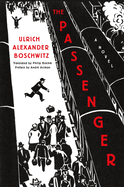
| Publisher: | Metropolitan Books | |
| Genre: | General, Fiction, Historical, Jewish, World War II | |
| ISBN: | 9781250317148 | |
| Pub Date: | April 2021 | |
| Price: | $24.99 |
| Fiction |
by Ulrich Alexander Boschwitz, trans. by Philip Boehm
In this restored version of his novel, nearly lost in the late 1930s, Ulrich Alexander Boschowitz delivers a vivid and disquieting account of German society's deterioration in the aftermath of the Kristallnacht pogroms. At the novel's outset, Otto Silbermann has fared better than many other Jews in Berlin, as an affluent businessman and a veteran of the Great War. Otto's middle-class respectability has shielded him from the worst of the Nazi party's encroachments. But in November 1938, as widespread acts of antisemitic violence erupt across Germany, Otto's illusions of security are shattered: "I no longer have any rights," he reflects, "and it's only out of propriety or habit that so many act as though I did."
Otto narrowly evades the storm troopers who arrive at his home to arrest him, and boards one train after another in search of respite from his persecution. Turned away by trusted friends and associates, he finds that constant movement is his only chance at safety: "I am no longer in Germany. I am in trains that run through Germany. That's a big difference." As fear and exhaustion threaten to sabotage him, Otto tries to hold together a sense of himself that seems constantly on the verge of unraveling. Boschowitz relates this fight for self-preservation--not just of life, but of identity--in harrowing psychological detail.
Boschowitz's novel, originally drafted in the weeks immediately following Kristallnacht, was thought lost after the author's death in 1942. Recovered and revised in 2018 and appearing here in a translation from the original German by Philip Boehm, The Passenger is an arresting glimpse at a pivotal and disturbing moment in history. --Theo Henderson, bookseller at Ravenna Third Place Books, Seattle, Wash.
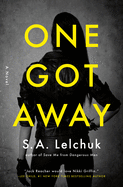
| Publisher: | Flatiron | |
| Genre: | Private Investigators, Mystery & Detective, Suspense, Thrillers, Fiction, Women Sleuths | |
| ISBN: | 9781250170279 | |
| Pub Date: | April 2021 | |
| Price: | $27.99 |
| Mystery & Thriller |
by S.A. Lelchuk
Nikki Griffin, defender of abuse victims from S.A. Lelchuk's explosive Save Me from Dangerous Men, returns in the unpredictable One Got Away with a case involving a family that's not exactly helpless--the billionaire Johannessens of San Francisco.
Martin Johannessen hires Nikki to intervene in the relationship between his 80-something mother and a much younger man, Geoffrey Coombs, who seems to be separating the family matriarch from her money at a rapid clip. Not long after Nikki starts following him, Coombs takes flight, with Nikki giving chase. Then she discovers Martin hasn't told her everything. Coombs isn't the only problem; the Johannessens have much more dangerous and deadly adversaries. And one of the bad guys could be part of the family.
Nikki is still a badass but this time operates more like a traditional private investigator, which she's licensed to do. She has a boyfriend who wants to move in with her but the idea gives her serious pause. There is a triangle of sorts between her and two men, but neither feels like the right fit for her. She is most riveting when not pondering about the men in her life but protecting people who need help, like the hyper-literate and lonely boy she encounters while hunting Coombs. Nikki also owns a bookstore, and fans will appreciate how she sees the world in a literary way, such as observing that a building "looked like some German pillbox in an Alistair MacLean novel." A woman of action who's also a book nerd? Don't let this one get away. --Elyse Dinh-McCrillis, blogger at Pop Culture Nerd
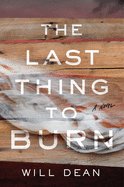
| Publisher: | Emily Bestler/Atria | |
| Genre: | Psychological, Domestic, Suspense, Thrillers, Fiction | |
| ISBN: | 9781982156466 | |
| Pub Date: | April 2021 | |
| Price: | $27 |
| Mystery & Thriller |
by Will Dean
Nighttime on a dusty road in the English countryside finds a young woman scurrying from a rundown farmhouse. Her progress is impeded by her hobbled right foot, frequent checks over her shoulder for a pursuer and a desperate search for help. Suddenly, a pair of Land Rover headlights light her up. Her captor has caught her again, in the hard-to-put-down thriller The Last Thing to Burn.
Official-looking men approach the parents of Thanh and her sister, Kim-Ly, to offer the teenagers well-paying jobs in England. They'd work during the day and study at night for professional careers. But when the sisters arrive from Vietnam, Thanh is sold to a farmer named Lenn. In his house, she must always leave the bathroom door open, she must cook the way his mother did and she must submit herself sexually to him. Any pushback and Lenn burns a personal object of Thanh's. Cameras in the farmhouse monitor her while Lenn works in the fields and the footage is reviewed nightly. Thanh has been patiently planning an escape for years, but now she's pregnant, which makes any escape even more treacherous, perhaps fatal.
Authors are expected to be creative, but Will Dean (Dark Pines) exceeds all reader expectations in channeling the mind of a young, sex-trafficked Vietnamese woman desperately trying to hold on to her sanity. Thanh's horrific treatment and the countless plot twists threatening her plans make her eventual escape tear-inducing and universally satisfying. --Paul Dinh-McCrillis, freelance reviewer
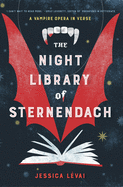
| Publisher: | Lanternfish Press | |
| Genre: | Fantasy, Fiction, Historical | |
| ISBN: | 9781941360514 | |
| Pub Date: | April 2021 | |
| Price: | $16 |
| Science Fiction & Fantasy |
by Jessica Lévai
Billed as a "vampire opera in verse," Jessica Lévai's debut novella is a deliciously swoony melodrama of star-crossed lovers told in five acts of Onegin sonnets.
In 1960s Germany, 19-year-old Kunigunde Heller yearns after books, magic and the Graf, a 400-year-old vampire lord with "a graceful, noble bearing." However, "the Heller clan, for generations/ Had hunted such abominations," and Kunigunde will one day succeed her grandmother Luzia as family head. Despite a fragile treaty in which the vampires swore not to kill humans if the vampire hunters would not hunt vampires, a relationship between the maiden and the monster is unthinkable. Nevertheless, with Luzia out of town, Kunigunde uses a request to visit the Graf's library as a pretext to see him, and maiden and monster strike up a passionate romance.
As dramatic and pathos-inducing as any plot Puccini or Verdi could have conjured, The Night Library of Sternendach has its own brand of enchantment. Its distinctive format raises the beauty-and-the-beast trope to deliriously romantic new heights. Despite the Hellers' family business, readers should expect the vibe to echo Romeo and Juliet more than Buffy the Vampire Slayer. Lévai mentions training, but all vampire hunting takes place offstage, and the narrative focuses primarily on relationships and emotional awakenings.
Occasional sly or self-aware asides contrast with the romantic angst and add to the impression of an authorial voice in total control and having a wonderful time. Paranormal romance fans longing for new blood will thrill to see fresh life breathed into the vampire/mortal pairing subgenre in such imaginative packaging. --Jaclyn Fulwood, blogger at Infinite Reads
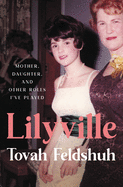
| Publisher: | Hachette Books | |
| Genre: | Biography & Autobiography, Family & Relationships, Parenting, Theater, Personal Memoirs, General, Motherhood, Performing Arts | |
| ISBN: | 9780306924026 | |
| Pub Date: | April 2021 | |
| Price: | $29 |
| Starred | Biography & Memoir |
by Tovah Feldshuh
In the delightful Lilyville: Mother, Daughter, and Other Roles I've Played, Broadway powerhouse Tovah Feldshuh writes about the best part she ever had: that of the daughter of Lillian Kaplan Feldshuh, "my Olympian of common sense, my wise stone mountain." But that appreciation took a while to dawn.
Growing up in Scarsdale, N.Y., in the 1950s and '60s, Feldshuh fell in love with performing. Her lawyer father, Sidney, was supportive, but Lily, an educated, depressed housewife who was born in 1911 and was never encouraged to have a career, was aghast that her daughter wanted to pursue work as impractical as acting ("Why don't you just go into the kitchen, get my challah knife, stick it into my heart, and twist it!"). It wasn't Feldshuh's success that eventually led to Lily's mellowing; it was the death of her beloved Sidney, in 1996. Writes Feldshuh: "Before Dad's death, what I had witnessed were decades of Lily's silent courage and unexpressed feelings. When he died, and it pains me to say this, she bloomed." Lily bloomed to age 103.
A mother-daughter love story, a paean to Jewish identity and a lamentation over the limited horizons for women of Lily's generation, Lilyville is presented as a theater piece in three acts, with 16 highly entertaining scenes and two droll intermissions. The production is sprinkled with cameos (Barbra Streisand, Patti LuPone) and spiked with repartee worthy of the stage (Lily: "You are not going to a trade school"; Feldshuh: "But, Ma, it's Juilliard!"). --Nell Beram, author and freelance writer
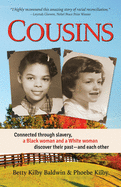
| Publisher: | Walnut Street Books | |
| Genre: | Biography & Autobiography, Race & Ethnic Relations, General, Cultural, Ethnic & Regional, Social Science | |
| ISBN: | 9781947597426 | |
| Pub Date: | April 2021 | |
| Price: | $14.99 |
| Biography & Memoir |
by Betty Kilby Baldwin, Phoebe Kilby
In Cousins: Connected Through Slavery, a Black Woman and a White Woman Discover Their Past--and Each Other, Betty Kilby Baldwin (Wit, Will & Walls) and Phoebe Kilby, descendants of a family that included both enslaved people and their enslavers, powerfully delve into their painful, intertwined ancestry.
The result is a stirring, potent reflection on recent American history. Kilby Baldwin, who is Black, grew up in rural Virginia in the 1940s-'60s--and was lead plaintiff in a case against her local board of education following the landmark Brown v. Board of Education decision. Her school integration journey is fascinating, infuriating, inspiring and impossible to forget. Phoebe Kilby, who is white, grew up in Baltimore, Md., attending private, all-white schools. Eventually, her discovery of her family's history as enslavers--of Kilby Baldwin's ancestors, among others--leads her to Kilby Baldwin, and to a poignant reckoning with their painful shared past. Told in chapters from their alternating perspectives as well as via candid conversations between the women, Cousins also lays out the meaningful reconciliation and racial justice work to which they've devoted their lives.
In times of ongoing battles against racial injustice, readers may be searching for models for conceiving a more comprehensive, inclusive framing of U.S. history and enacting change--and they'll find it here. A bonus: the book's proceeds fund the Kilby Family Endowed Scholarship Fund, providing scholarships to descendants of persons enslaved "in recognition of their strength and resilience, and to contribute to making amends for their mistreatment." --Katie Weed, freelance writer and reviewer

| Publisher: | Basic Books | |
| Genre: | Economics, Cognitive Neuroscience & Cognitive Neuropsychology, Theory, Psychology, Science, Social Science, Emotions, Life Sciences, Sociology, Business & Economics, Evolution, Evolutionary Psychology, Social Theory | |
| ISBN: | 9781541646995 | |
| Pub Date: | April 2021 | |
| Price: | $28 |
| Psychology & Self-Help |
by Simon McCarthy-Jones
A "strong" definition of the word spite, an act "where you harm another person and harm yourself in the process," does not leave much room for positivity. Yet the subtitle of Simon McCarthy-Jones's fascinating new work, Spite: The Upside of Your Dark Side, more than hints at how spite can be a constructive force. An associate professor of psychology and neuropsychology at Dublin's Trinity College, McCarthy-Jones has multiple degrees, papers and books to support his ideas about spite. That doesn't mean he declines the use of cinema's Terminator or Batman for occasional help explaining them.
Spite "runs deep," found in ancient myth and folklore, and most of us are familiar with its negative connotations. Yet if spite has no purpose since everyone loses, why was it not weeded out by natural selection long ago? McCarthy-Jones uses plain language, movies, humor and several economic "games" to "shine a light" on what he convincingly puts forth as an important tool for preventing injustice.
In the Ultimatum Game, player one is told player two in the room next door has $10 to share as they see fit. Player one can accept or reject player two's offer, but a rejection means both players get nothing. This seemingly simple game and its variations (the Dictator Game, the Joy of Destruction Game, etc.) are used ingeniously by McCarthy-Jones to explain both valid and improbable human behaviors, including voting against one's own best interests. Entertaining and illuminating, Spite explains how a society that depends on cooperation requires spite to thrive. --Lauren O'Brien of Malcolm Avenue Review
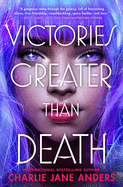
| Publisher: | Tor Teen | |
| Genre: | Space Opera, War & Military, Young Adult Fiction, Alien Contact, Science Fiction | |
| ISBN: | 9781250317315 | |
| Pub Date: | April 2021 | |
| Price: | $18.99 |
| Starred | Children's & Young Adult |
by Charlie Jane Anders
The teenage clone of an alien war hero navigates love and her birthright as she joins the fight against a murderous enemy in Victories Greater than Death, the captivating interstellar adventure YA debut from award-winning author Charlie Jane Anders (All the Birds in the Sky).
Tina is no ordinary teenager: disguised as a human and hidden on Earth, she is the clone of alien intergalactic war hero Captain Thaoh Argentian. She is also the last real hope for the Royal Fleet in their war against the Compassion, a genocidal terrorist group bent on eliminating all non-humanoid alien civilizations. Tina is eager to begin "claiming my legacy... the person I was meant to be," but when she finally joins the Fleet, she finds Argentian's accomplishments beyond daunting. To make her transition all the more difficult, she is, for some unknown reason, failing to regain Argentian's memories. Still, she is determined to help, and alongside her military peers and five of the most brilliant human teens from Earth, she embraces the fight against the deadly Compassion.
Victories Greater than Death is full of imagination, empathy and a diverse cast of characters. The coexisting alien civilizations vary in physical appearance and base philosophies, and their communities include different species. The self-titled "Earthlings"--Tina and her five human companions--fit perfectly into this intergalactic melting pot with contrasting cultures, ethnicities, sexual orientations and identities. United in their differences, the teens also seek love, self-efficacy and belonging in their intergalactic mission. Anders's multi-faceted and sparklingly distinct worldbuilding make this book a smashing read. --Jennifer Oleinik, freelance writer and editor

| Publisher: | little bee books | |
| Genre: | Death, Grief, Bereavement, Sports & Recreation, Social Themes, Camping & Outdoor Activities, Juvenile Fiction, LGBTQ+ | |
| ISBN: | 9781499811933 | |
| Pub Date: | April 2021 | |
| Price: | $17.99 |
| Children's & Young Adult |
by Harry Woodgate
There are some fine picture books revolving around a child's experience of loss, but there aren't many designed to help kids understand someone else's grief. With the affecting Grandad's Camper, Harry Woodgate takes a step toward reducing that deficit. To do so, they enlist a groovy camper as a symbol of both the past and moving on.
"Every summer, I go to stay at my grandad's house by the sea," reports a girl who appears to be about eight. "My favorite thing to do," she explains, "is snuggle up on the sofa and listen as Grandad tells me about all of the amazing places he and Gramps would explore. One of the high points of Grandad and Gramps's life together was a road trip: 'We saw lots of different kinds of homes.... But we were happy with our little home on wheels.' " When the girl asks Grandad why he's no longer out there having adventures, he says, "Since Gramps died, I just don't feel like it." This gives her an idea.
The girl's narration doesn't sound like that of a child, and at times the dialogue seems mechanical. Nevertheless, the book has the potential to be an effective tool for teaching empathy, and the intergenerational bond at the story's center is a heartstrings puller. The art throughout Grandad's Camper is dashing, the layouts somehow chockablock but never too busy. Geometric elements create an orderliness that allows for the book's boundless palette. When Grandad reflects on his life with Gramps, his memories take the visual form of vignettes showing the younger versions of the men--Grandad white, Gramps with the same brown skin tone as the girl--on the road, at home or enjoying the great outdoors, always delighted to be together. --Nell Beram, freelance writer and YA author